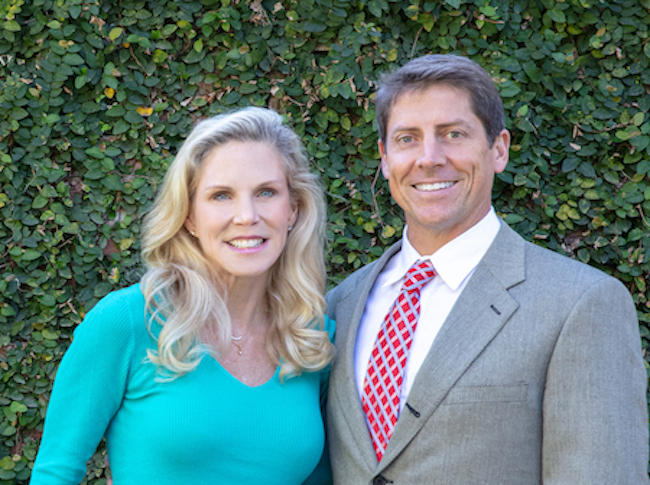Lowcountry Spine & Sport offers non-surgical orthopedic care, including injury care and many traditional therapies, head to toe. But prepare for a refreshingly different approach.
The first difference you might notice is the time Batson spends evaluating your condition. Besides examining you physically, he wants to know who you are and how pain is affecting your daily life—your work, leisure activities, state of mind, relationships, etc. “If I don’t know those things, I can’t help patients make the necessary adjustments,” he said.
The second difference is the variety of treatment options he offers. While he administers steroid injections and prescribes pharmaceutical products as needed, Batson is focused on the bigger picture beyond today. “There is a time and place to calm someone’s pain down. There is a time and place for pain pills. But that shouldn’t be the ongoing plan,” he said. “That should be something that we use to get things settled, trying to reset the cycle in their body to more of a healing phase rather than this inflammatory process that goes on and on.”
Don’t be surprised if Batson discusses nutrition, exercise, and other lifestyle changes. “I’ve always had a passion for fitness. That’s one reason I went into sports medicine,” he said. “I have the mentality that nutrition is important for all of us, and I believe strongly that fitness and activity is healthy. But patients have to buy into that too. Until they’re ready to make those changes, I’m happy to treat the flareups as they come, but we try to encourage a more holistic plan going forward.” Phase one might include an injection to calm things down. Phase two might be getting into physical therapy to improve strength and motion. Phase three is to prevent it from coming back again, he explained.
Dr. Batson’s wife Alice is an accredited certified health coach with a master’s degree in public health and a certification from NSCA as a strength and conditioning specialist. She is available for nutritional consulting and health coaching for patients at Lowcountry Spine & Sport.
If surgery is needed, Batson is well connected. “I’m a good orthopedic gatekeeper, you might say. If they need a knee or hip replacement or some type of spine surgery, I know who they should go see. Orthopedics is so compartmentalized now, it’s nice when I can refer them to where they can get the best care.” That said, he notes that the majority of his patients don’t need surgery, and he has options to help them manage pain in a much less invasive way.
“What makes me unique is that I did dual fellowships in both sports medicine and pain management,” Batson said. “A lot of my focus on a healthier lifestyle comes from my training in sports medicine. A lot of what brings people in my door is pain. But I think it’s the sports approach that tends to be a little bit different from a typical pain clinic.”
That doesn’t mean you have to be an athlete to see Dr. Batson. His patients range in age from high schoolers with acute injuries and middle agers experiencing the first twinges of joint pain to retirees aiming to stay active and octogenarians looking to avoid falls and keep arthritis pain at bay.
Most rewarding, he said, is when patients come back to him over the years for advice. “They are trusting my judgment because we’ve gotten to know each other in situations where their lives or their jobs or relationships were affected by pain. I think they know that I care. They also know the door’s open here. If you call us and need to get in, we’re going to get you in.”
In the face of a changing, less personal medical world, Batson added, “I’m trying my best to maintain that relationship.”
Lowcountry Spine & Sport is located at 300 New River Parkway, Suite 37, in Hardeeville with a second location coming soon to Hilton Head Island. For more information, visit www.spineandsportmd.com or call (843) 208-2420.
Your Options are Open
While there is a time and place for conventional therapies, Dr. Batson believes in keeping up with the latest in science, medicine and technology to offer his patients a broad array of alternatives. Here are four exciting pain management and regenerative care options:
Prolotherapy. A dextrose solution is injected directly in or around an arthritic area or a painful tendon. “The body recognizes it as a mild irritant and sends healing cells to that spot,” Batson explained. “Common scenarios for this treatment would be tennis elbow, golfer’s elbow, and even some of the arthritic complaints in backs or knees.”
PRP. Platelet-rich plasma therapy entails drawing the patient’s own blood, putting it in a centrifuge to isolate platelets and then injecting them in a specific place using guided imagery, Batson explained. “The most common spot is knee arthritis, where studies look better with the PRP than with other types of injections such as steroids or hyaluronic acid. The results are good for folks who are healthy people. If someone is very active and has pretty good motion but they’re plagued with a little bit of pain from arthritis, I think that’s a perfect candidate to try something like this rather than repeated steroids. On the flip side, if someone needs to lose some weight or get in better shape, we might recommend other therapies before we offer PRP.”
Stem cell therapy. While preliminary studies look promising, according to Batson, treatments are expensive, and the jury is still out. “I offer it, but being honest, it’s very confusing out in the public right now,” he said. “When I say stem cells, we harvest them from your adipose tissue or your bone marrow and inject them into your knee or hip or shoulder. That’s different from taking a commercial product that has been freeze dried, bottled and shipped across the country. Those are what I would consider growth factor injections. There are some studies showing that might be helpful too, and there are certain cases where we’ve tried that. But those are not live stem cells. The onus is on us as providers to say this is what’s out there; this is what we know about it.”
CBD. The challenge with CBD is that the horse is out of the barn and there are so many products being offered, Batson said. “It’s challenging for patients to understand and know what to try.” He has educated himself and narrowed his product line down to one source he knows and trusts. “It’s been good for some of my patients to have that alternative.”



